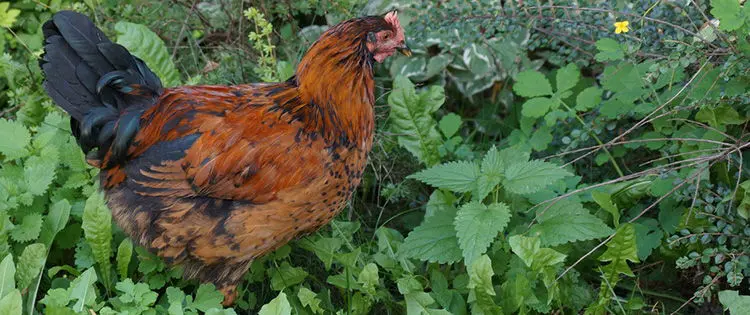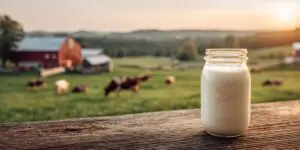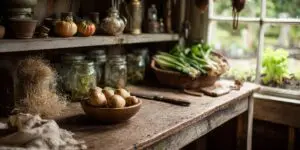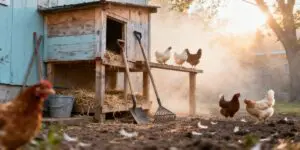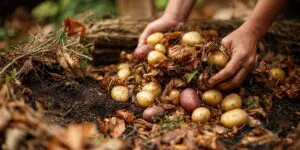Did you know that over 13 million Americans raise chickens with ownership spread evenly between all types of rural, urban, and suburban households?
It’s a great way to get fresh organic eggs that’s easy and fun, right from your backyard. But raising chickens has some challenges. One of these is to keep your chickens safe from harm.
This article addresses the importance of protecting your chickens from harmful plants specifically if you free-range your flock.
Chickens are omnivores, extremely curious by nature, and have strong instincts about what they should and should not eat. They may avoid the toxic plants altogether or be tempted and eat them regardless. Especially if the chickens are extremely hungry, other food sources are not available, or you are handfeeding them, they are more apt to eat the toxic plants. One bite might be enough for them or they may surprise you and eat the entire plant!
So, it is a good idea to be proactive and not plant these plants on your property or fence off your gardens to ensure safety and optimal health for your chickens. Make sure to plan a variety of safe plants to snack on with enough space to free-range.
Related: 10 Common Mistakes You Should Avoid If You Want To Raise Chickens
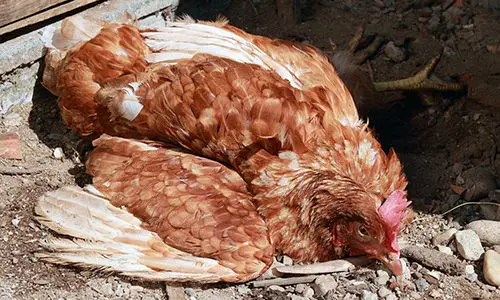
If your chickens eat a toxic plant, they may exhibit typical symptoms of drooling, diarrhea, lethargy, breathing difficulties, tremors and seizures, an inability to stand up, and the drooping of the head or tail.
If you suspect a chicken has been poisoned by eating something, it is best to bring your chicken to the veterinarian for proper treatment. Since chickens are relatively small in size, the toxin can have a serious immediate effect. If you observed them eating a specific plant, bring part of the plant with you as well.
There is no complete list of what plants are dangerous for chickens, but these 9 common plants are at the top of the list.
1. Azaleas: Azaleas contain toxins called grayanotoxins. When ingested, the toxins can cause heart problems, gastrointestinal issues, overall body weakness, and tremors. Because of the strength of the toxin, it is necessary for the chicken to be treated immediately by a veterinarian for the best chance of full recovery.
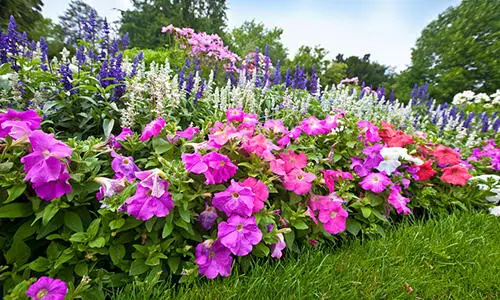
2. Beans: Raw uncooked beans or dried beans are not suitable for chickens to eat. They contain the toxin hemagglutinin. The beans must be sufficiently cooked to destroy the toxin. If not, this food laden with nutrients might be deadly.
3. Daffodils: Since these flowers spout in early spring and may be one of the few green plants in your yard at this time, it is especially important to keep them away from your chickens. Every part of the daffodil contains lycorine, a toxic chemical.
The highest concentration of lycorine is in the bulb. In addition, there are about 20 different toxic alkaloids in the plant. Eating any part of the plant can cause abdominal pain, nausea, diarrhea, and vomiting which may even lead to kidney failure, heart issues, and death.
4. Ferns: All parts (especially the roots) of various ferns are toxic. The toxin affects the gastrointestinal tract and causes vitamin B1 deficiency, weight loss, anemia, and tremors. Not all ferns are poisonous, but bracken fern, asparagus fern, emerald fern, lace fern, and plumosa fern are some of the more common types of ferns that are poisonous.
The chickens often eat these types of ferns in summer when looking for shaded areas so you should fence the ferns off and supply other areas (trees and bushes) to shield the sun from the chickens in warmer, sunny weather.
Related: Gardening Mistakes That Might Get You Killed
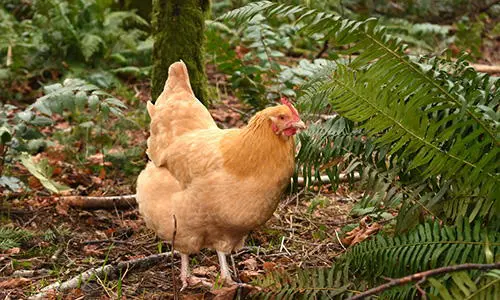
5. Foxglove: The plant contains digitalis, a chemical that can affect the heart. Most typically, it causes a slow heartbeat, low blood pressure, and even shock or death. It can also cause liver failure. All parts of the foxglove plant including the berries and flowers are extremely poisonous.
6. Lily of the Valley: Don’t let this lovely-smelling flower fool you. The plant contains cardiac glycosides which affect the heart. Eating as little as two leaves can be fatal to chickens.
Lily of the Valley has ranked up high on the list of toxic lookalikes most people confuse with their nutritious and medicinal equivalents. The plant that resembles Lily of the Valley is not only edible, but also helps with reducing anxiety, insomnia and migraines. It works best when used as a brain tonic. Here’s the recipe.
7. Rhododendron: The plant’s leaves, flowers, and nectar contain the toxin grayanotoxin. This toxin is a natural chemical defense produced in the plant to guard against insects. However, it is poisonous to chickens. Ingestion of even a few leaves can interfere with cardiac and skeletal muscle development as well as nerve function.
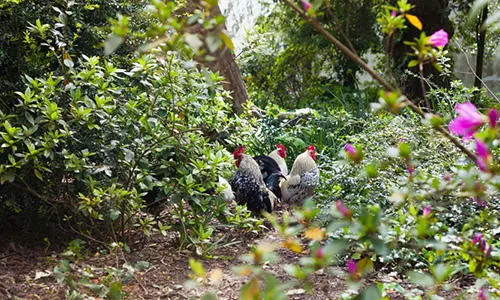
8. Rhubarb: The leaves of the rhubarb contain high levels of oxalic acid, a poisonous toxic to birds that causes kidney failure. Chickens often enjoy digging and scratching around the plants and nibbling on the stalks which are not poisonous. But they may be attracted to the rhubarb plant and eat the leaves as well.
9. Nightshades: The nightshade family consists of over 70 different herbs, shrubs, and trees with alternate leaves, cymose flowers, and berries along with some poisonous weeds, various ornamentals, and important crop plants (such as the potato, tomato, pepper, eggplant, etc.). The leaves and immature fruit contain the toxin solanine which can lead to inflammatory and digestive problems.
For those who have planted an herb or vegetable garden and included some nightshades, it is essential that you fence off this area so there is no chance of temptation for your chickens.
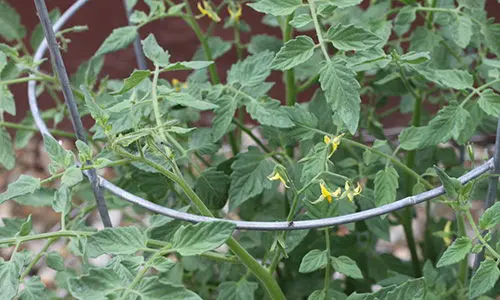
With some prior knowledge of harmful garden plants and good basic planning, you can confidently raise your chickens knowing they will be healthy and happy, and able to produce quality eggs for a long time.
What’s more, your chickens can enjoy free-range activities and you can rest assured they will be safe.
You may also like:
How To Store Food Without Electricity That Can Last Up To A Year (Video)
Chicken Secrets Nobody Told You About
Best And Worst Livestock For Homesteaders
Livestock Animals You Should Start Raising For The Upcoming Economic Crisis

